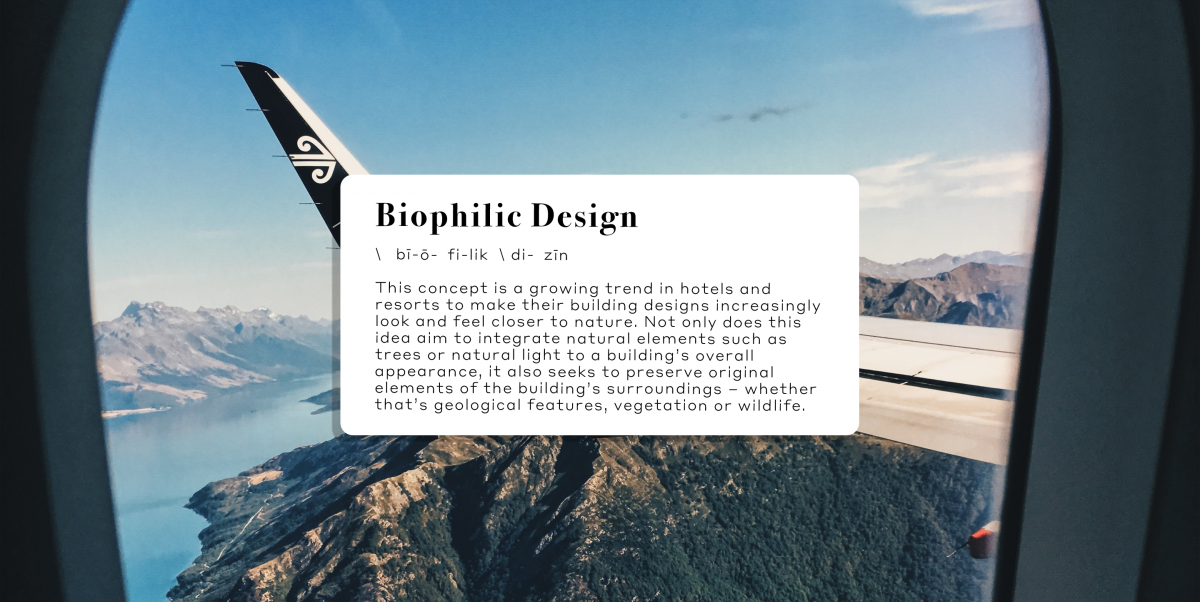Now that we’re travelling again (yay!) after a long two year hiatus, it’s important to not only remember how to pack our bags, but also to ensure we do so in a sustainable manner. The mantra, “Take nothing but photographs, leave nothing but footprints” should always be taken to heart. This is the key to sustainable travel: don’t do harm and always preserve the people, animals, cultural heritage, economy and environment you visit.
But there are some other useful terms worth knowing to make sure you understand the impact of your adventures in the places you visit. As part of our ‘Sustainability Defined‘ series, we’ve rounded up 10 helpful sustainable travel terms – so read on intrepid travellers!
See also: 10 Useful Eco Fashion Terms
Biophilic Design

This concept is a growing trend in hotels and resorts to make their building designs increasingly look and feel closer to nature. Not only does this idea aim to integrate natural elements such as trees or natural light to a building’s overall appearance, it also seeks to preserve original elements of the building’s surroundings – whether that’s geological features, vegetation or wildlife.
Community-Based Tourism
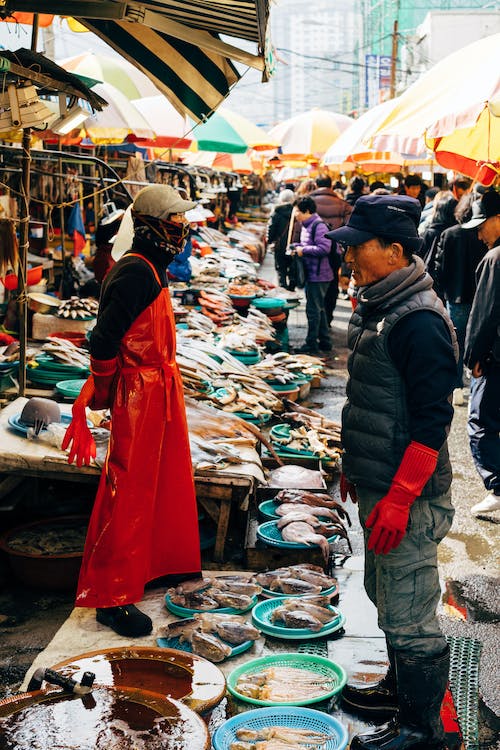
Community-based tourism is a sustainable strategy that a community adopts to ensure they directly benefit from tourism within their areas. This means that locals are involved in the decision-making process, with the aim that the local economy profits from holiday-goers. Therefore, every provider – including hotels, restaurants, transport and guides – should be owned locally and more specifically, within the community itself.
Conscious Travel

Understanding the impact of your travels actually has its own term: ‘conscious travel’. But this means more than just being mindful about the negative effects of your journey. Conscious travel also takes into account the positive impact too, such as making a deliberate effort to travel to a less popular destination and contribute to its economy, rather than an already popular site.
Flygskam & Tagskryt
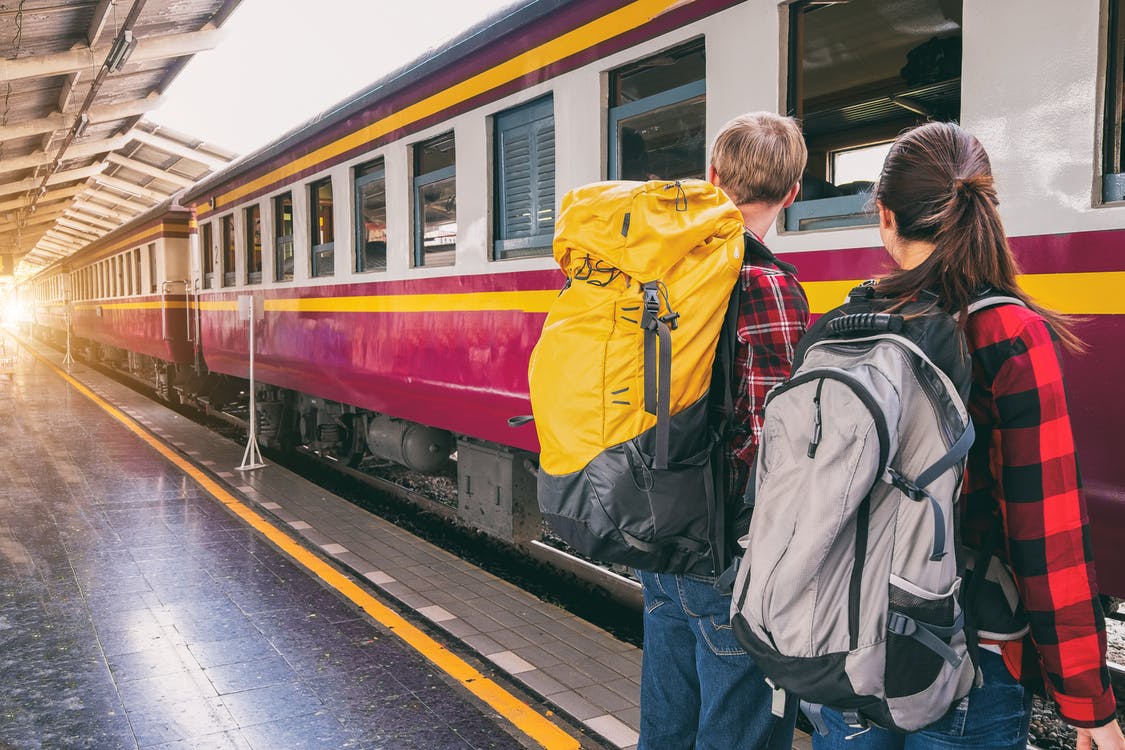
Both originating from Sweden, these terms are closely connected; they were popularised with the rise to prominence of climate activist Greta Thunberg, whose refusal to take flights and instead travel by train spawned these terms. ‘Flygskam’ or flight shaming refers to when air trips are considered non-essential and a less carbon-intense alternative is available – such as making a phone call, going on a video conference or…’Tagskryt’ aka train-bragging, where travellers brag about the rail lifestyle instead of being a jet-setter.
Homestays
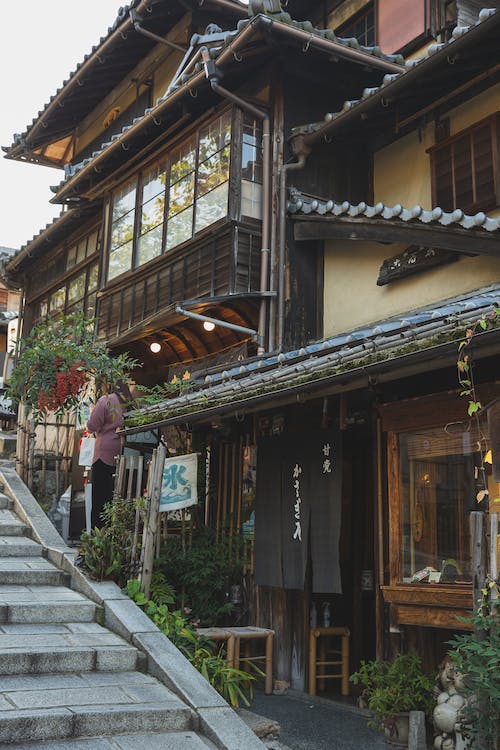
A homestay is when a foreign traveller stays with a local – either a family or an individual – to get an immersive look into their way of life and learn more about the local community from a direct source. In addition to getting an authentic experience, homestays are a cheaper alternative than staying in hotels and also more interactive than staying at a hostel or Airbnb.
Nature Reserve
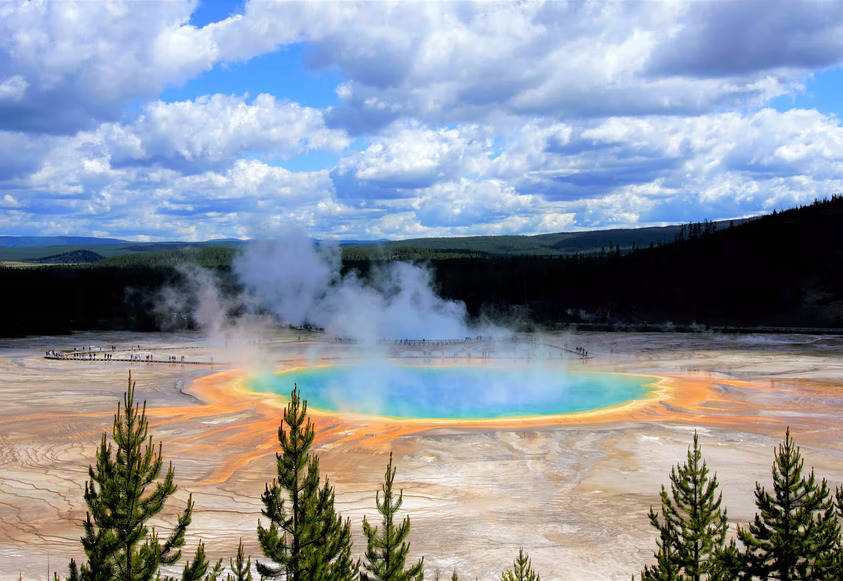
Nature reserves are often part of government land, are usually open to the public and have set aside land for native plants and animals to not only survive but thrive. Some of the best-known nature reserves include Yellowstone National Park in the US and Banff in Canada. There are also aquatic nature reserves such as Australia’s Great Barrier Reef and the Galapagos Islands in Ecuador.
Off-Grid
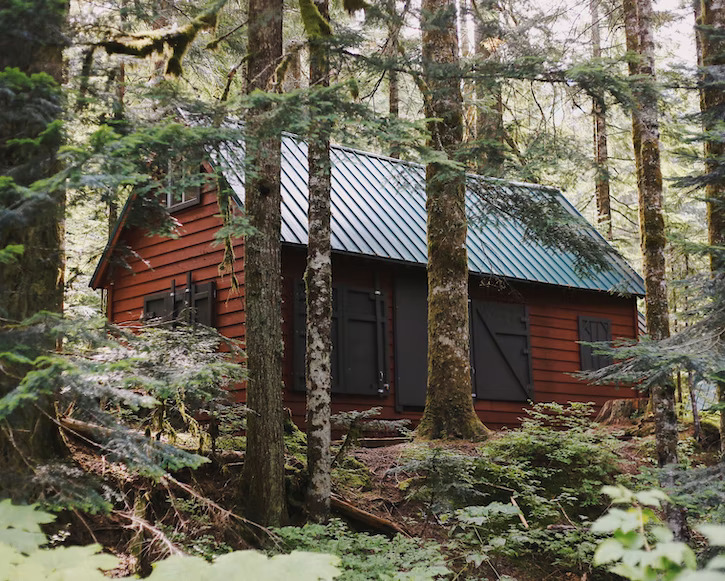
This refers to hosts or destinations that are self-sufficient, using renewable energy instead of existing grids to cool their rooms, heat their pools, power their rooms and supply electricity to the entire resort. In addition to lowering your carbon footprint, another benefit of staying at an off-grid option is the opportunity to disconnect from the world with a digital detox.
Regenerative Travel
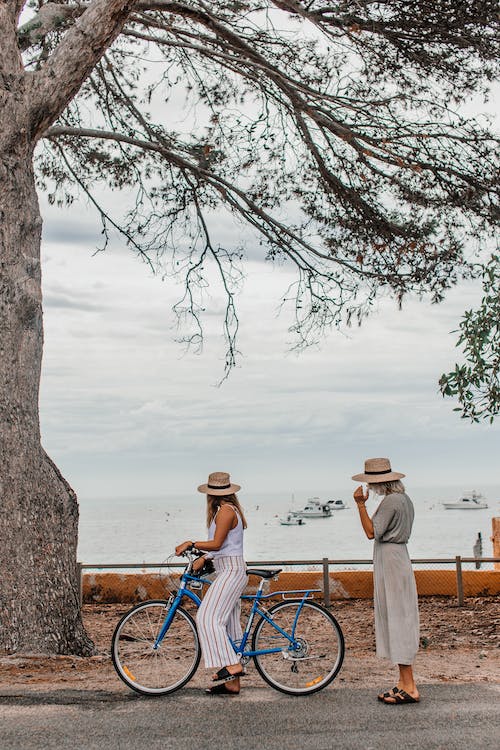
When you take sustainable travel and turn it all the way up to eleven, that means you’ve unlocked ‘regenerative travel’. This refers to when you not only seek to minimise the harm you do to your destination, but also ensure that you leave it healthier and better than how you originally found it.
See also: 8 Ways to Make Your Junk Trips More Sustainable
Voluntourism
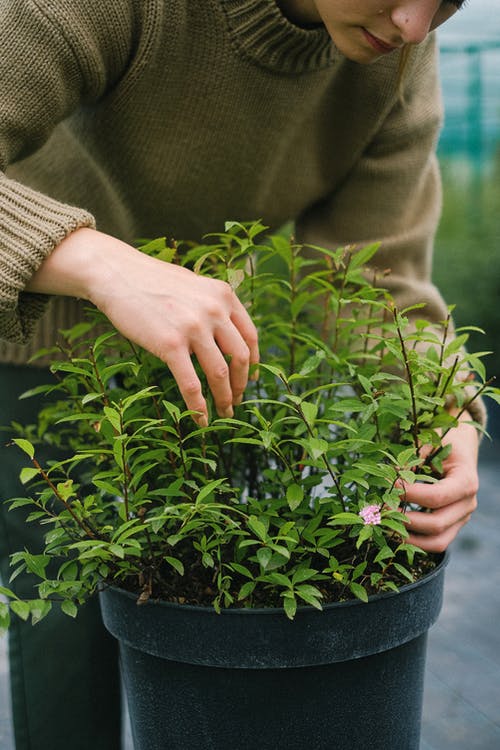
This portmanteau of ‘volunteering’ and ‘tourism’ means exactly that you think it does: when you travel for leisure but with a side aspect of volunteerism. An example of this would be travelling to Sumba Island in Indonesia for a surfing holiday or to explore hidden lagoons – but also help with English lessons for locals or tend the gardens at a local eco-lodge and hotel while you’re there.
Wild Camping & Swimming
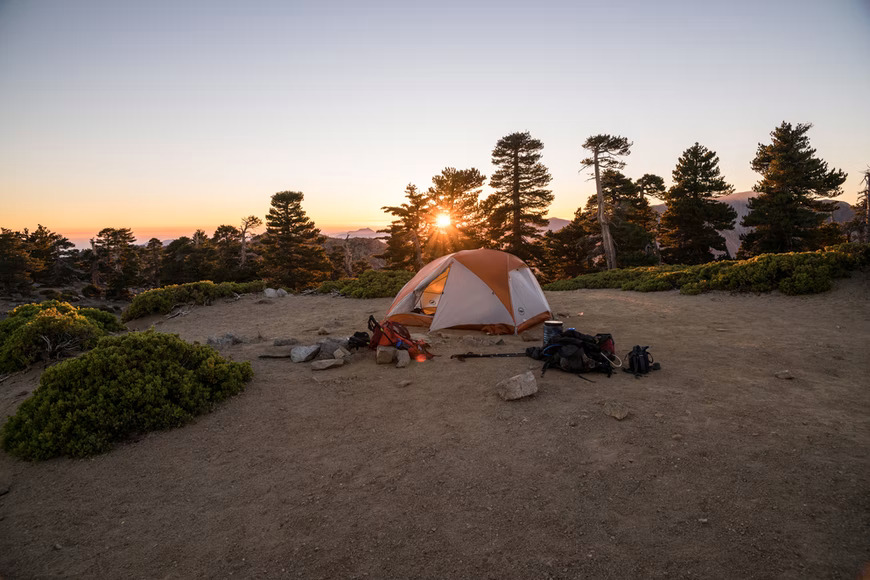
Now if you really want to go off the grid, don’t stay at a resort! ‘Wild camping’ is camping anywhere that’s not an official campsite, while ‘wild swimming’ is the act of swimming in natural bodies of water. Just make sure to check local rules and regulations before doing either!
See also: 5 Sustainable Travel Hacks for Your Next Trip
Sign up for the 8Shades weekly newsletter to get our top stories in your inbox!
